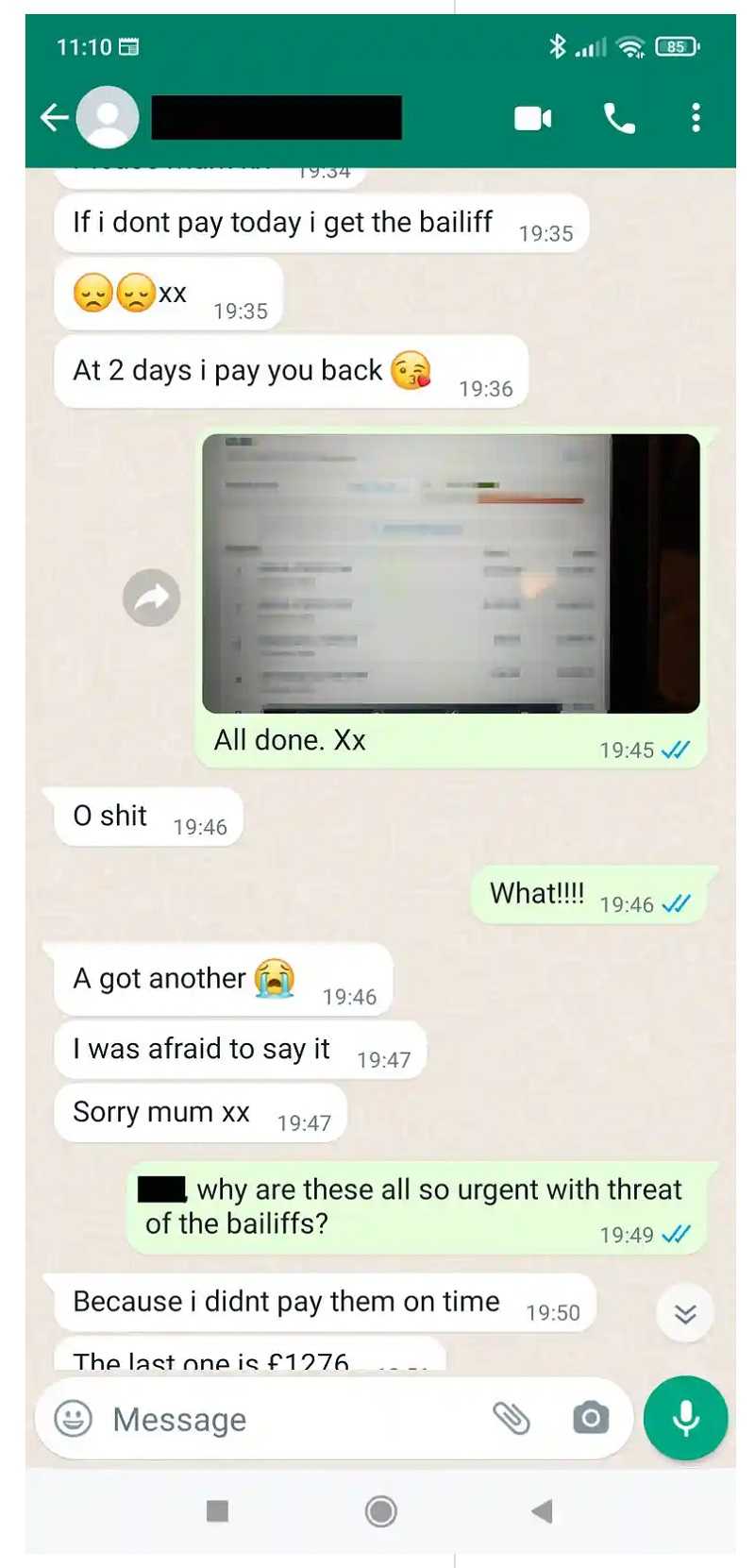If you receive a WhatsApp message from a loved one asking for financial help, it’s a very good idea to become a bit of a private investigator before turning over any funds. The popular chatting/phoning/video calling app has been taking a beating lately and once again it’s the tool cybercriminals are using to get to your money. And they are pulling out the best of their social engineering and manipulation tactics to do it. This time, it’s by masquerading as loved ones on WhatsApp.
This new trick has been reported as having the following characteristics:
- The attacker sends a simple message such as “Hi Mom,” with a reason for using a different phone number.
- Then, there is a string of messages explaining a supposedly difficult situation requiring financial assistance.
- The messages may include answers to the victim's other questions, not related to this financial scam.
The objective is to trick the victim into sending money to the criminal behind the attack.
 A BBC (British Broadcasting Corporation) commentator shared that her mother nearly fell for this. She shared the messages her mother received in WhatsApp. The attacker first explained that his/her phone number was changed and went on to explain that all the data was lost. One important factor is that the financial institution would not be able to change the accounts used for bill payment for a few days and in the meantime, there were indeed bills that needed paid before there was access to those accounts. Then, there was a request for a loan to pay those, with details to make the transfer. In this case, the scammer asked for the equivalent of over $2,700.00 USD.
A BBC (British Broadcasting Corporation) commentator shared that her mother nearly fell for this. She shared the messages her mother received in WhatsApp. The attacker first explained that his/her phone number was changed and went on to explain that all the data was lost. One important factor is that the financial institution would not be able to change the accounts used for bill payment for a few days and in the meantime, there were indeed bills that needed paid before there was access to those accounts. Then, there was a request for a loan to pay those, with details to make the transfer. In this case, the scammer asked for the equivalent of over $2,700.00 USD.
There were even cute other, more personalized comments made by the scammer, as well as emotional ones, such as “It’s been the worst day ever.”
This type of scam just tells us once again that there is truly a need to verify who you’re communicating with, even if they're claiming to be a loved one. If something doesn’t feel right, take a few minutes to confirm that who you’re talking with is who you really think it is. This might be asking a question that only your loved one would know, or calling former number to make sure it's not a scam (a scammer may claim the phone speaker is broken to avoid a conversation).
There are certainly signs to look for to ensure you don’t fall for this. One of the main warning signs of any scam, be it this or something you get in an email messages, is the sense of urgency. They make it seem like you cannot take any time to think about it, but must act or something terrible will happen. If you get an unexpected link or attachment in an email or on a text/SMS message, don’t click on it without confirming separately with the sender. Call them back, send them a completely separate email, or if you can, pay a personal visit to them.
Remember that if you aren’t allowed to take some time to verify it, it is most certainly a scam. Take that time and trust your instincts. If you think something smells phishy, it probably is.